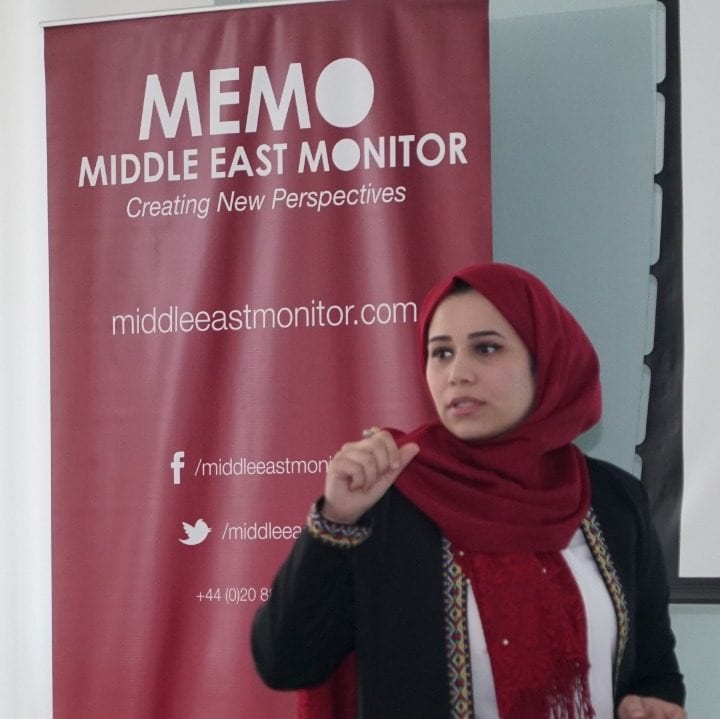There are some 70,000 Palestinian refugees living in 26 states in Brazil. They have a significant presence in southern Brazilian states such as Rio Grande de Sol, Foz do Iguaçu and Santa Caterina. Many members of the Palestinian communities there belong to the professional classes, and they play a prominent role in the political and economic life of the country. The integration of Palestinian diaspora members into Brazilian society and their proficiency in the Portuguese language has helped them to reach out to their neighbours and establish political, social and cultural relations. Nevertheless, the Palestinian communities in Latin America are one of the least-studied of the many diaspora communities. Those in Brazil, in particular, are a relatively undiscovered treasure.
How did Palestinians refugees get to Brazil?
The first wave of migration from Palestine to Brazil started in the early to mid-twentieth century. Thousands of Palestinians migrated in search of jobs and to escape from the difficult political situation in Palestine during the British Mandate period in their home country. Most of the Palestinians in Latin America migrated from cities, towns and villages in central Palestine, such as Bethlehem, Jerusalem, Beit Jala, Taybeh and Beit Sahour. It wasn’t long before they got involved in local commerce and the textile and clothing trade.
WATCH: Palestine and Latin American, MEMO in conversation with Eman Abusidu
More Palestinians migrated as a result of the ethnic cleansing of their land known as the Palestinian Nakba which began in 1948; yet more left the country after the Six Day War in 1967 which Israel started by destroying the Egyptian Air Force while its aircraft were still on the ground. At that time, Gaza was under Egyptian administration, while the West Bank was administered by Jordan.
The Nakba resulted in 750,000 Palestinians being driven from their homes; the 1967 Naksa saw another 420,000 forced to leave. Following this, measures taken by the Jordanian authorities and the desire of some Palestinians to join their families and relatives who had migrated to Latin America earlier pushed even more Palestinians to go to Brazil.

[Eman Abusidu/Middle East Monitor]
Palestinians in Brazil are between integration and fusion
Palestinians across Brazil are an example of a significant group of immigrants who have integrated successfully into the host culture. The acceptance of difference, tolerance and respect for others over and above distinctions of race or creed are fundamental Brazilian values which have enabled Palestinians to blend into the wider society. As has happened in other parts of the world, the first generation of migrants struggled to integrate due to religious and cultural differences, and basically formed their own communities to support each other. Holding on to their identity and language was thus easier. The first wave of migrants were mainly adults for whom it was difficult to adapt to new surroundings, culture, identity and language; their aim was to work for a short time, save some money and then go back home.
That, though, didn’t happen, and now the second and the third generations are well integrated into Brazilian society. As the melting pot that is Brazil’s culture continues to dominate the Palestinian community, it is becoming harder to identify Brazilian citizens of Palestinian descent.
While playing an important role in society, the Palestinian community in Brazil is facing many challenges, not least the loss of their language and identity among the second and third generations born outside Arabic-speaking lands. A number of efforts have been made to re-connect these younger people with the Arabic language and Palestinian culture.
READ: Brazilian Congress holds a special session for Palestine
Palestinians in Latin America and their connection with Palestine
Recent years have witnessed serious attempts to translate the Palestinian influence into action, particularly in Brazil .Technological developments and the impact of social media have enabled the Palestinians in Brazil to learn more about the situation in the Israeli-occupied Palestinian territories. This has sparked the desire of a new generation of Palestinian Brazilians to participate in Palestinian politics and seek a role in what happens in Palestine. As a result, they have organised political and cultural conferences and events to strengthen relations between the various Palestinian communities in Brazil and Palestine, creating an international front to support the rights of the Palestinian people.
A new generation of diaspora Palestinians in Latin America has emerged and seeks to reconnect with the motherland. An increasing number of young Palestinians living in Latin America are visiting Palestine to get to know the situation at first hand, and to visit their family lands and meet distant cousins and other relatives. These frequent visits strengthen the links between the Palestinians in Latin America and their occupied homeland and raises awareness about the tragic situation in occupied Palestine.

[Eman Abusidu/Middle East Monitor]
The views expressed in this article belong to the author and do not necessarily reflect the editorial policy of Middle East Monitor.

![Members of the Palestinian community in Santa Catrina, Brazil [Eman Abusidu/Middle East Monitor]](https://i0.wp.com/www.middleeastmonitor.com/wp-content/uploads/2022/07/a39f16f0-23dd-4212-97a8-63d026a05700.jpg?fit=920%2C613&ssl=1)

![551b21f8-d9ac-4c4a-89e2-e962772bb169 [Eman Abusidu/Middle East Monitor]](https://i0.wp.com/www.middleeastmonitor.com/wp-content/uploads/2022/07/551b21f8-d9ac-4c4a-89e2-e962772bb169.jpg?w=456&h=304&ssl=1)
![2797efab-dc35-48aa-96da-66154b7ec7fe [Eman Abusidu/Middle East Monitor]](https://i0.wp.com/www.middleeastmonitor.com/wp-content/uploads/2022/07/2797efab-dc35-48aa-96da-66154b7ec7fe.jpg?w=456&h=304&ssl=1)






